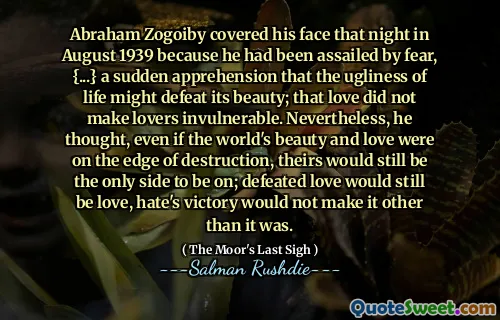Yes, I know there is a fashion nowadays for these Hitler's-valet type memoirs, and many people are against, they say we should not humanise the inhuman. But the point is they are not inhuman, these Mainduck-style little Hitlers, and it is in their humanity that we must locate our collective guilt, humanity's guilt for human beings' misdeeds; for if they are just monsters - if it is just a question of King Kong and Godzilla wreaking havoc until the aeroplanes bring them down - then the rest of us are excused.
In the passage, the author challenges the notion of depicting historical figures like Hitler solely as inhuman monsters. He acknowledges a common sentiment against humanizing such figures, suggesting that it is important to confront their humanity rather than dismiss them as purely evil. This perspective encourages a deeper reflection on collective accountability for the actions of individuals who commit atrocities.
By recognizing the humanity of these figures, the author emphasizes that society must grapple with its shared guilt and responsibility for their actions. If we categorize such leaders merely as monstrous beings, it absolves the rest of humanity from examining its complicity in their rise and the resulting horrors. This highlights an essential theme in the book "The Moor's Last Sigh" by Salman Rushdie, which seeks to provoke thought about the moral implications of our histories.
